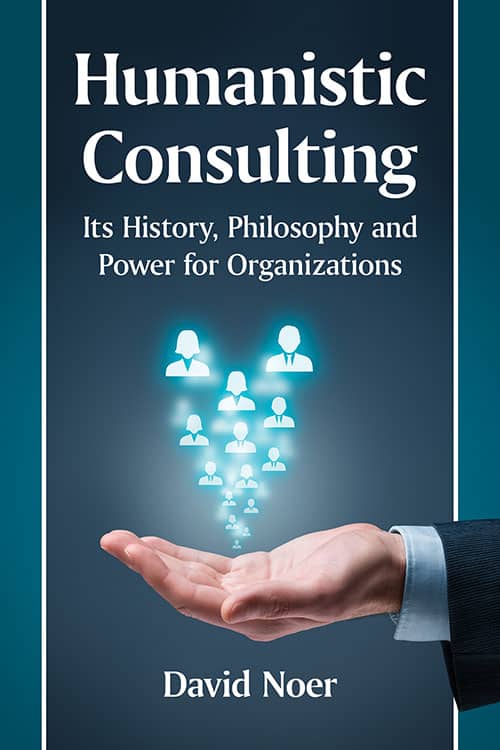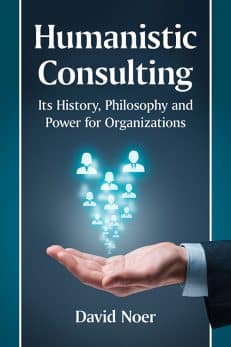Humanistic Consulting
Its History, Philosophy and Power for Organizations
Original price was: $19.99.$6.99Current price is: $6.99.
In stock
About the Book
When organizational leaders reflect on who has most influenced their careers, they often name a humanistic consultant. A humanistic approach to working with people and organizations spans leadership development, executive coaching, organization development and efforts to transform and revitalize systems. The tools are borrowed from diverse sources: its effectiveness relies on a compassionate practitioner.
Tracing the historical roots of the practice, this book explores the elements that shape humanistic consulting and give it powerful versatility. Insights are offered for consultants, managers and students alike.
About the Author(s)
Bibliographic Details
David Noer
Format: softcover (6 x 9)
Pages: 216
Bibliographic Info: tables & graphs, appendices, bibliography, index
Copyright Date: 2017
pISBN: 978-1-4766-6779-9
eISBN: 978-1-4766-2747-2
Imprint: McFarland
Table of Contents
List of Figures ix
Preface 1
Part One: History, Evolution and Applications 7
1. The Humanistic Consultant 9
2. Organization Development: A Concept in Search of a Definition 18
3. The Beginning: Three Wise Men and the Birth of NTL 27
4. The Formative Years: Outsiders, Stems, Roots and Streams 33
5. The OD Practitioner 41
6. Organizational Behavior: OD’s Academic Cousin 51
7. Organization Transformation: OD’s Radical Cousin 60
8. Humanistic Coaching 69
9. Leadership Development 79
Part Two: Influence of Therapeutic and Philosophic Models 89
10. Reflections on Therapy and Consultation 91
11. The Big Three: Freud and His Dissident Disciples 97
12. A Discordant Quartet: Perls, Rogers, Ellis and Skinner 104
13. The Existential Influence 112
Part Three: Perspectives and Observations 121
14. Reflections and Heretical Realities 123
15. Six Managerial Paradigms in the Process of Becoming 128
16. The Practitioner as a Hired Gun 137
17. Breaking Organizational Codependency 146
18. Nurturing Learning Cultures 156
19. New Reality Management 163
20. The Right Stuff 175
Appendices: Self Assessments 187
Appendix A: Susceptibility to Organizational Codependence Index 189
Appendix B: Organizational Preference Questionnaire 191
Appendix C: Consulting Behaviors Inventory 194
References 197
Index 203






